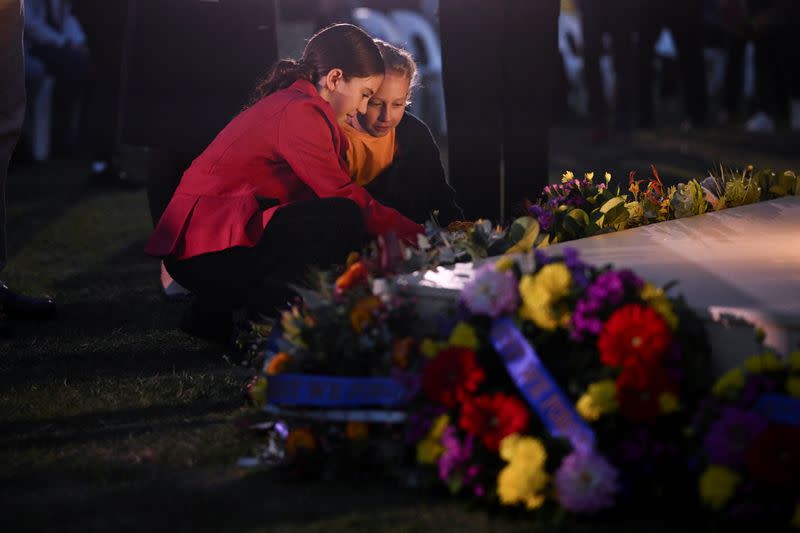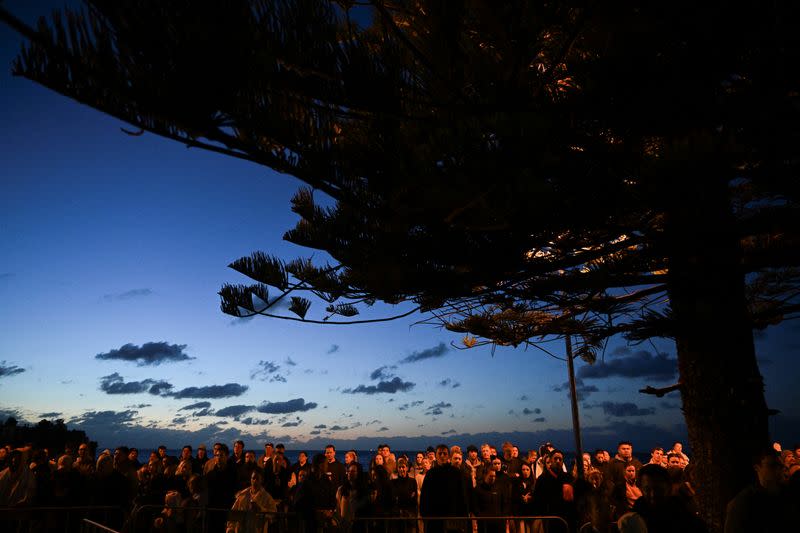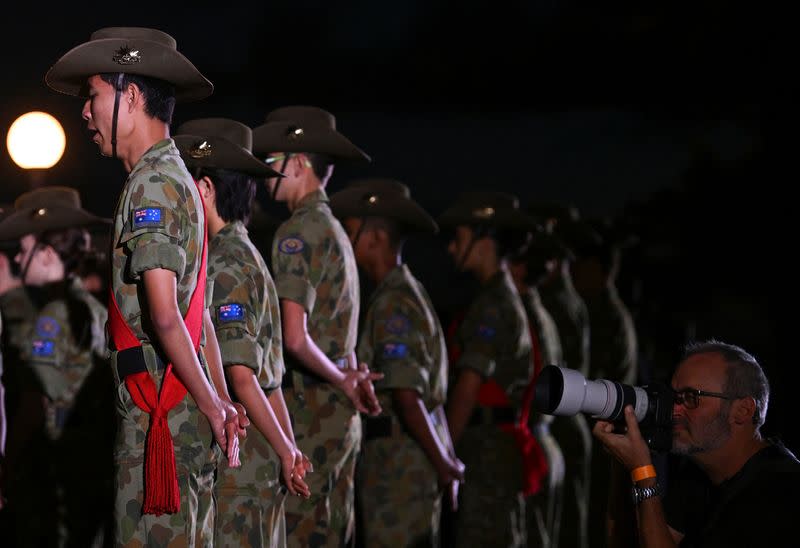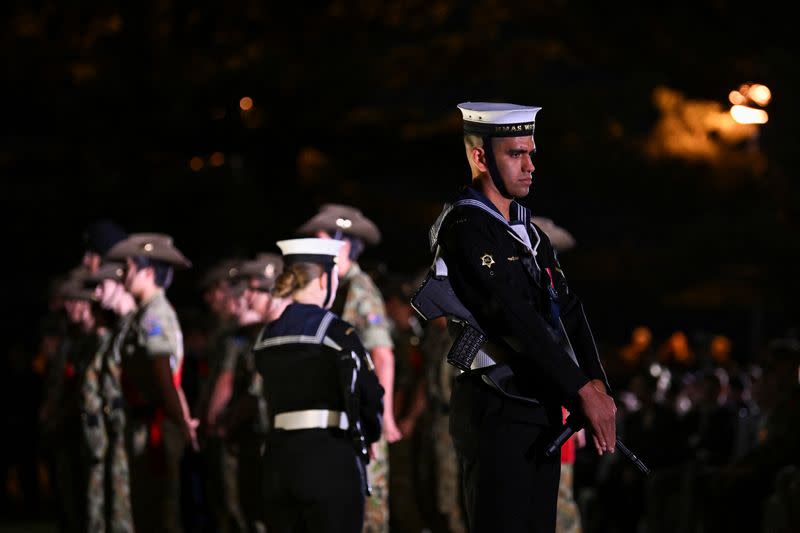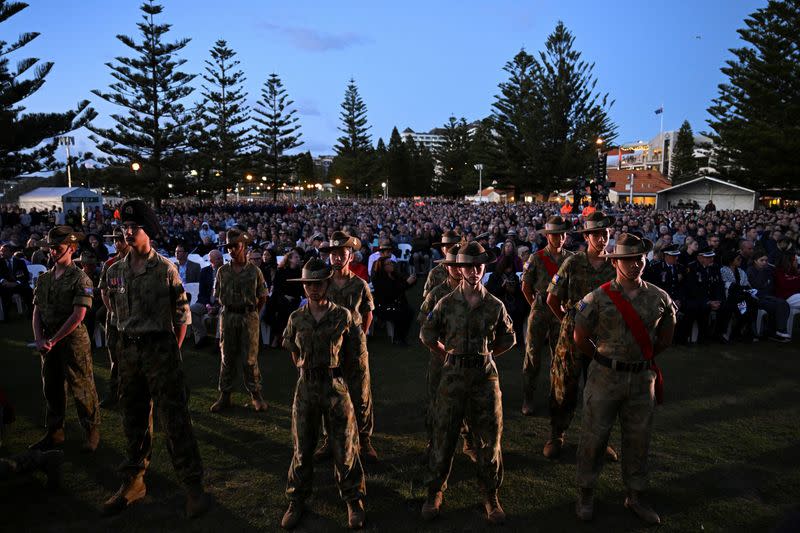Thousands mark Anzac Day in Australia and New Zealand
SYDNEY (Reuters) -Thousands gathered across Australia and New Zealand on Thursday at Anzac Day services to commemorate those who fought and died in major conflicts in the nations' history.
Anzac Day originally commemorated a battle on the Gallipoli peninsula in Turkey during World War One. At dawn on April 25, 1915, thousands of troops from the Australian and New Zealand Army Corps (ANZAC) were among a larger Allied force that landed on the narrow beaches of the Gallipoli peninsula, an ill-fated campaign that would claim more than 130,000 lives.
Today, Anzac Day, a public holiday, honours all Australian and New Zealand troops from all conflicts.
"We hold to the solemn promise our countries made to the fallen all those years ago: We will remember them," Australian Prime Minster Anthony Albanese said in the town of Isurava, Papua New Guinea, the scene of heavy fighting against the Japanese in World War Two.
"Anzac Day has never asked us to exalt in the glories of war. Anzac Day asks us to stand against the erosion of time, and to hold on to their names. To hold on to their deeds," Albanese said, according to a transcript.
In Canberra, some 39,200 people attended a dawn memorial service at the Australian War Memorial, a spokesperson for the memorial said in a statement.
Along with marches by war veterans and their descendants, Anzac Day in Australia is known for dawn vigils, memorial services, reunions, and "two-up", a gambling game popular with returned World War One soldiers.
Across the Tasman Sea in New Zealand, the National Anzac Day commemoration service in Wellington was cancelled due to strong winds, the New Zealand Herald reported.
Thousands of New Zealanders attended dawn services in other parts of the country including Auckland, the country's most populous city, according to the news site.
"Lest we forget", Prime Minister Christopher Luxon said on social media platform X, alongside photos of him at a memorial service at Auckland's War Memorial Museum.
(Reporting by Sam McKeith in Sydney; Editing by Stephen Coates)

